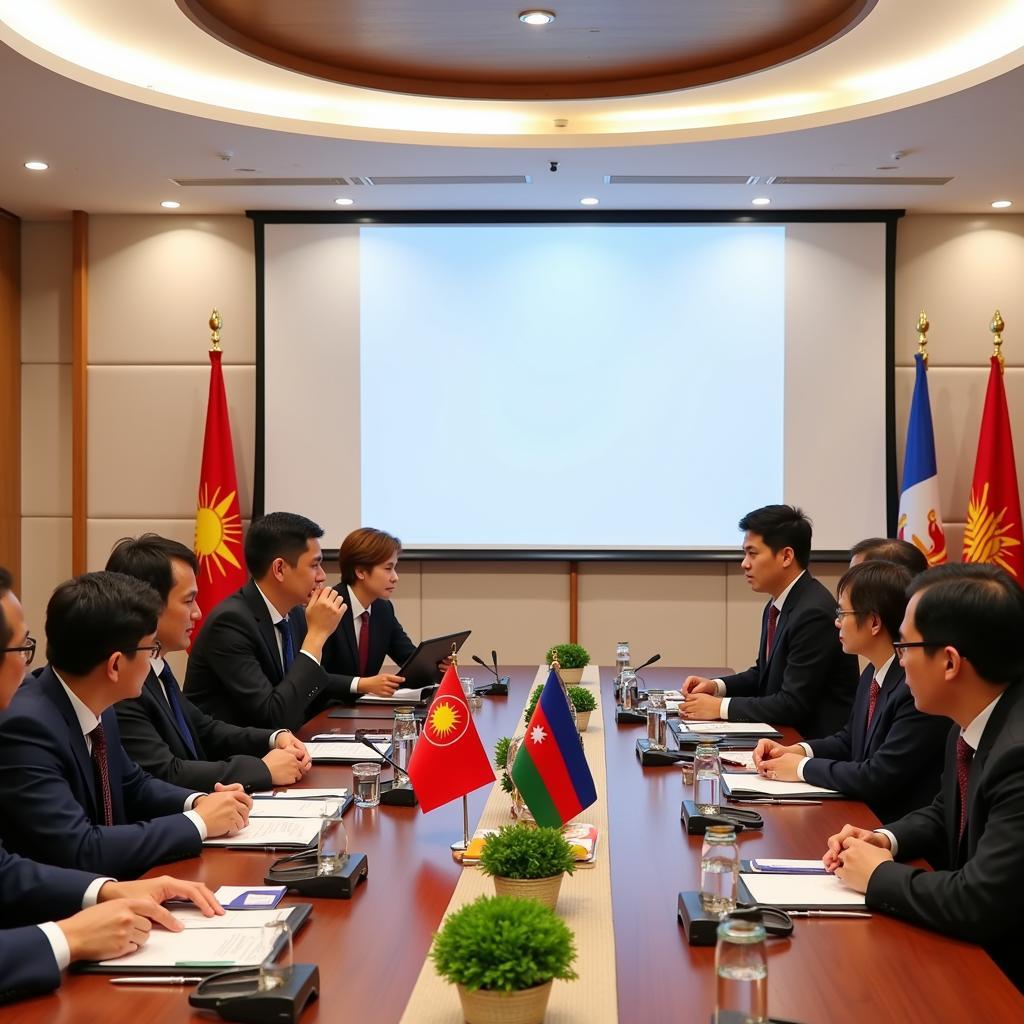ASEAN and North Korea’s nuclear and missile programs have been intertwined in a complex relationship for decades. While geographically distant, the two entities are connected through historical ties, economic interests, and shared security concerns in the Asia-Pacific region. This dynamic has made ASEAN a key player in the international effort to address the challenges posed by North Korea’s pursuit of nuclear weapons.
ASEAN’s Stance on North Korea’s Nuclear Ambitions
The Association of Southeast Asian Nations (ASEAN) has consistently expressed grave concern over North Korea’s nuclear and ballistic missile programs. ASEAN’s position is rooted in its core principles of peace, stability, and denuclearization, enshrined in the Treaty of Amity and Cooperation in Southeast Asia (TAC).
ASEAN has repeatedly called upon North Korea to comply with its obligations under relevant United Nations Security Council Resolutions (UNSCRs). These resolutions, adopted in response to North Korea’s nuclear tests and missile launches, impose sanctions and demand the country’s complete, verifiable, and irreversible denuclearization (CVID).
Economic and Diplomatic Engagement
Despite its firm stance against North Korea’s nuclear ambitions, ASEAN has also recognized the importance of dialogue and engagement. ASEAN has supported the Six-Party Talks, a multilateral forum aimed at resolving the North Korean nuclear issue peacefully. Though stalled since 2008, the Six-Party Talks, which included North Korea, South Korea, the United States, China, Japan, and Russia, demonstrated the potential for diplomacy.
ASEAN has also engaged with North Korea through economic cooperation. Some ASEAN member states have maintained trade relations with North Korea, albeit limited due to international sanctions. The potential for economic incentives has been seen as a way to encourage North Korea to denuclearize.
Challenges and Opportunities for ASEAN
Navigating the complexities of the North Korean nuclear issue presents both challenges and opportunities for ASEAN.
Challenges:
- Maintaining unity within ASEAN: While ASEAN presents a united front on the issue, individual member states have varying levels of economic and political ties with North Korea, which can sometimes lead to differing approaches.
- Balancing engagement with pressure: ASEAN seeks to maintain dialogue and economic cooperation with North Korea while also upholding sanctions and condemning provocations, a delicate balancing act.
- Addressing the humanitarian impact: Sanctions, while aimed at curbing North Korea’s nuclear program, have also had unintended consequences for the North Korean people, raising humanitarian concerns.
Opportunities:
- Leveraging ASEAN’s neutrality: ASEAN’s position as a non-aligned bloc allows it to engage with all parties involved in the North Korean nuclear issue, potentially playing a mediating role.
- Promoting regional dialogue: ASEAN can provide a platform for dialogue and confidence-building measures among stakeholders in Northeast Asia.
- Facilitating capacity building: ASEAN can share its experience in conflict resolution, denuclearization, and economic development with North Korea.
Looking Ahead: ASEAN’s Continued Role
The North Korean nuclear issue remains one of the most pressing security challenges facing the international community. ASEAN, with its principled stance on denuclearization, its commitment to dialogue, and its unique position in the region, has a crucial role to play in addressing this challenge.
By promoting dialogue, upholding sanctions, and working with its partners, ASEAN can contribute to a peaceful resolution of the North Korean nuclear issue and foster lasting peace and stability in the Asia-Pacific region.
Frequently Asked Questions
1. What is ASEAN’s stance on North Korea’s nuclear program?
ASEAN strongly condemns North Korea’s nuclear weapons program and advocates for its complete, verifiable, and irreversible denuclearization (CVID).
2. How does North Korea’s nuclear program impact ASEAN?
North Korea’s nuclear tests and missile launches pose a serious threat to regional and global security, undermining peace and stability in the Asia-Pacific, which directly impacts ASEAN member states.
3. What is ASEAN doing to address the North Korean nuclear issue?
ASEAN has consistently urged North Korea to comply with UN Security Council Resolutions, supported the Six-Party Talks, and engaged in dialogue and economic cooperation to encourage denuclearization.
4. What are the challenges for ASEAN in addressing this issue?
Challenges include maintaining unity within ASEAN, balancing engagement with pressure on North Korea, and addressing the humanitarian impact of sanctions.
5. What are the opportunities for ASEAN to contribute to a solution?
ASEAN can leverage its neutrality to mediate, promote regional dialogue, and facilitate capacity building in North Korea.
6. How does ASEAN’s position on North Korea reflect its principles?
ASEAN’s commitment to denuclearization, dialogue, and peaceful resolution of disputes are central to its core principles enshrined in the Treaty of Amity and Cooperation in Southeast Asia.
7. What is the future outlook for ASEAN’s involvement in the North Korea issue?
ASEAN is expected to continue playing a constructive role by facilitating dialogue, upholding international norms, and working with its partners to achieve a peaceful and denuclearized Korean Peninsula.
Need Support?
Contact us 24/7:
Phone: 0369020373
Email: [email protected]
Address: Thon Ngoc Lien, Hiep Hoa, Bac Giang, Vietnam.

